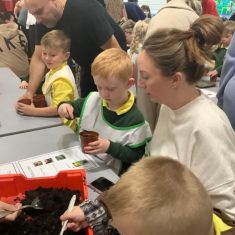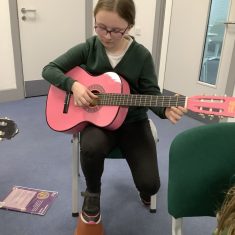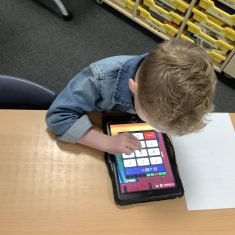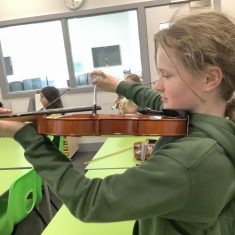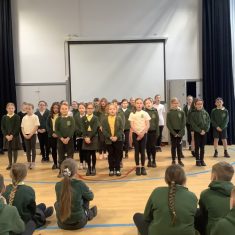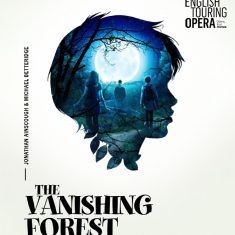Our Vision

Mrs Galvin – Year 6c Teacher / Music Lead
At Harlow Green, our music curriculum aims to deliver a high-quality music education which engages and inspires pupils to develop their self-confidence and creativity as they learn to critique, compose and perform in a variety of different contexts. Children are offered a range of opportunities to explore and perform different styles music using tuned and untuned instruments. Through assemblies, and via online activities, children explore different genres, as well as the history of music. Our ambition is for children to experience a sense of enjoyment and achievement through performing both individually and collectively.
Aims
The national curriculum for music aims to ensure that all pupils:
- perform, listen to, review and evaluate music across a range of historical periods, genres, styles and traditions, including the works of the great composers and musicians
- learn to sing and to use their voices, to create and compose music on their own and with others, have the opportunity to learn a musical instrument, use technology appropriately and have the opportunity to progress to the next level of musical excellence
- understand and explore how music is created, produced and communicated, including through the inter-related dimensions: pitch, duration, dynamics, tempo, timbre, texture, structure and appropriate musical notations.
Key Stage 1
Pupils should be taught to:
- use their voices expressively and creatively by singing songs and speaking chants and rhymes
- play tuned and untuned instruments musically
- listen with concentration and understanding to a range of high-quality live and recorded music
- experiment with, create, select and combine sounds using the inter-related dimensions of music.
Key Stage 2
Pupils should be taught to sing and play musically with increasing confidence and control. They should develop an understanding of musical composition, organising and manipulating ideas within musical structures and reproducing sounds from aural memory.
Pupils should be taught to:
- play and perform in solo and ensemble contexts, using their voices and playing musical instruments with increasing accuracy, fluency, control and expression
- improvise and compose music for a range of purposes using the inter-related dimensions of music
- listen with attention to detail and recall sounds with increasing aural memory
- use and understand staff and other musical notations
- appreciate and understand a wide range of high-quality live and recorded music drawn from different traditions and from great composers and musicians
- develop an understanding of the history of music.
Music Development
All schools should publish a summary of their music development plan on their website before the start of the 2024 to 2025 academic year. Schools should then update the summary before the start of each new academic year.
Publishing a summary will help schools to:
- raise awareness of their music development plan
- promote the school music offer to parents and prospective parents
- give greater opportunity for schools and music hubs to work together
Please click the link below to access the development plan summary for Harlow Green Community Primary School.
